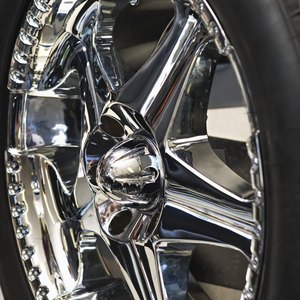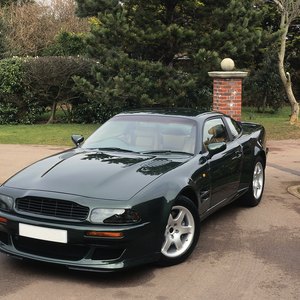
To protect your car parts from theft, you must carry more than the state-required minimum car insurance, which in most cases only provides liability protection. Liability insurance does not pay you for a stolen car or car parts. To assure that parts stolen off your car are covered, you must also have comprehensive or "other than collision" coverage. Even then, only the car parts that are original from the factory, not customized parts, are likely insured.
Cover Your Car Completely

To protect your car against physical damage, you must also add collision and comprehensive coverage to your liability coverage. Liability only covers you if you cause an accident that injures another person or damages another vehicle or any other property. State law mandates the minimum amount of liability coverage you must carry. Collision coverage protects your vehicle if it is damaged in an accident that is your fault. It is an optional coverage in most states. Comprehensive, also called "other than collision," covers damage to your car not caused by an accident, including theft, vandalism, fire, hail or running into animals. It is not a required coverage, but if you want to cover stolen parts it is a must-have protection.
Protect Car Parts

Comprehensive coverage protects all the permanent parts on the inside or outside of your car. But here's the qualifier: Most car insurers will only cover standard parts or reimburse you for the value of the original factory part that came with the car, even if you have upgraded a stereo or added customized tires or rims. Aftermarket parts, which are parts or accessories that are not the original factory installed parts on the vehicle, typically won't be covered unless you add an additional coverage option.
Inform Your Insurer

Many insurers do not cover custom parts or accessories or only cover them up to specific dollar amount due to the difficulty in verifying and valuing the additions to your car. Normally, car insurance companies rely on the Kelly Blue Book for their car values, and these values are based on cars with stock parts. If you currently have highly valued additions or modifications, you can receive some enhanced comprehensive coverage by providing you insurer a detailed breakdown of the added, non-factory parts and accessories.
Clarify Your Customizations

If you want your car insurer to cover your customized car parts, make your modifications clear to the insurer. Use videos and photographs to show that the parts have been added to your vehicle, and provide purchase receipts to document the exact value of the additions. Also, seek out a car insurer that offers add-on coverage for custom parts, equipment and accessories. For example, the insurer may include $1,000 worth of custom parts coverage in your standard policy, but allow you to add $4,000 in custom coverage for an additional cost.
References
- Edmunds. "Little-Known But Important Car Insurance Issues." Accessed May 6, 2020.
- Chubb. "Car Insurance." Accessed May 6, 2020.
- Allstate. "What to Expect When You File a Car Insurance Claim." Accessed May 6, 2020.
- American Family Insurance. "What Is OEM Coverage and Why Is It Important?" Accessed May 6, 2020.
- American Family Insurance. "What Is OEM Coverage and Why Is It Important? - Why Is This Coverage Not Being Offered to Vehicles That Are Eight or More Years Old?" Accessed May 6, 2020.
- State Farm. "Replacement Parts." Accessed May 6, 2020.
- State of Hawaii, Department of Commerce and Consumer Affairs. "Motor Vehicle Insurance; Repair; Original Equipment Manufacturer Parts; Aftermarket Parts," Pages 7-8. Accessed May 6, 2020.
- Progressive. "Repair Estimates - What Type of Parts Are Considered in the Estimate?" Accessed May 6, 2020.
- Chubb. "Shifting the Language of Auto Insurance for Successful Families and Individuals," Page 4. Accessed May 6, 2020.
Writer Bio
Chris Brantley began writing professionally for a financial analysis firm in 1997. From 2000 to 2004, he worked as a financial advisor, specializing in retirement planning and earned his Series 7, Series 66 and insurance licenses. Brantley started his full-time writing career in 2012 and has written for a variety of financial websites, including insurance, real estate, loan and investment sites. He holds a Bachelor of Arts in English from the University of Georgia.

